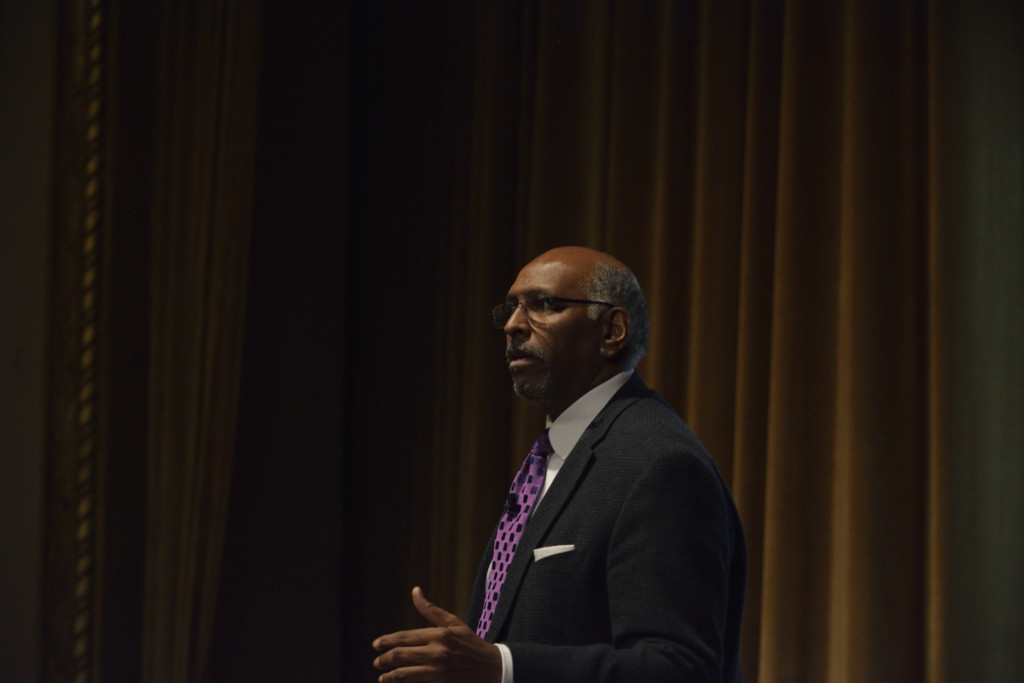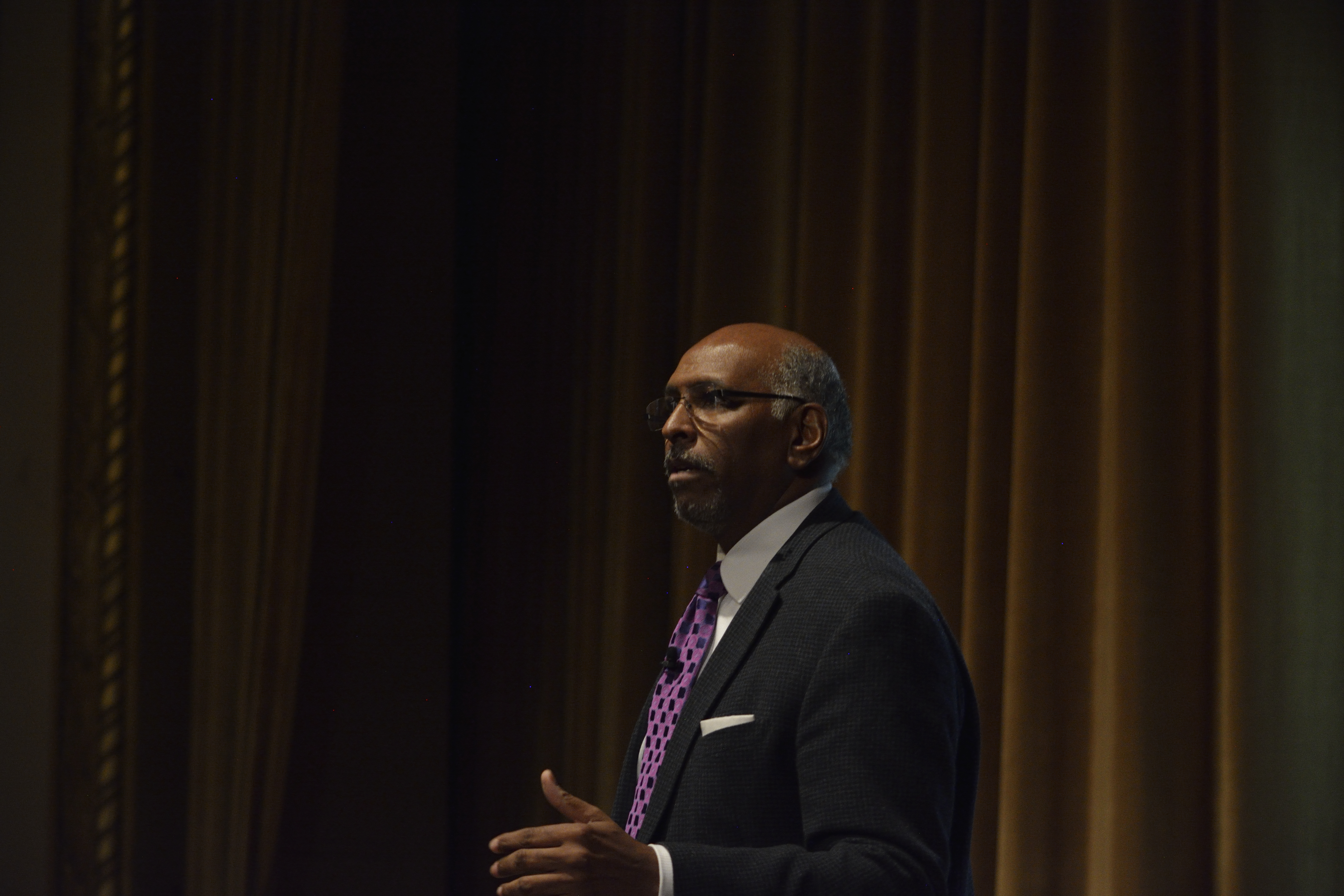Michael Steele, one of the headliners of Mel Weekend, led a discussion on American politics in which he argued that citizens need to be engaged and understand what they believe is worth fighting for.
“Don’t ask for permission to engage,” Steele said. “Get in, and be a part of creating solutions.”
Steele, the former Republican National Committee Chairman and Maryland Lieutenant Governor, is currently an MSNBC contributor. He held the discussion Saturday, Oct. 6 to a Strong Auditorium packed with students, parents, and alumni.
He explained to the audience that the responsibility of citizens comes from the charge of “We the People,” from the constitution.
Steele, is a frequent critic of the Republican Party, and his decision to stay in the party is an extension of this principle. In his words, it is to “hold his ground, and stake his claim to ideals.”
“It is easier to get you excited and angry about something than it is to allow you to control the process and let your passions guide the direction of the country,” Steele said.
Steele asserted a frustration centered on decades of broken promises leading to the election of Donald Trump.
“You can still be mad at folks who supported Trump, but at some point, you’ve got to stop and peel back the curtain of yourself and go what is it that is still worth fighting for,” Steele said.
Steele continued: “We are here because this is where we want to be, and we will be here as long as we want to be here.”
Steele told students there are tools and mechanisms to use at their disposal to “move us from where we are to where you want us to be.” Specifically, he cited voting, civic engagement, and elevating candidates who are better reflections of themselves.
He then asked the crowd how many people stay engaged after they cast their ballots. A few people raised their hands. To that response, Steele said we typically rely on one person to do all of the work: to do our civic duty, to protest, to vote, to hold officials accountable.
“When will we stop abdicating our responsibility to hold accountable the individuals we elect?” Steele asked.
Steele likened the political climate to a time of war — “a different kind of war that is more personal and more obscure” — with topics like Charlottesville and the #MeToo movement begging the question as to how people will respond.
If Trump is on the ballot this November or in 2020, Steele says he will win re-election.
“What is going to pull you in from your couch until you start engaging?” Steele asked. “What level of engagement are you prepared to make?”
According to Steele, those left wondering what happened missed all of this because they weren’t paying attention while they were sitting on their couch making assumptions that they didn’t have to be involved in their politics.
As Steele was concluding that the current politics are a result of the American people’s choice, an audience member interrupted. They argued that this was not true due to the electoral college and unfair practices by Republicans, to which Steele challenged the audience member to change it. He said both parties “play the same way.”
“X factor is you,” Steele said. “In the last election, it was Trump.”
During the Q&A section, there was a question about civil political discussion in society and how polarized it can be.
Steele explained that the problem is that people are trying to prove how smart they are, or how wrong their opponent is, rather than listening. He lamented that Republicans and Democrats are not developing relationships like they did in the past. Steele told students that they can disagree, but shouldn’t shut down the conversation.
At one point, he mentioned the Senate confirmation of Brett Kavanaugh, and the audience met him with both cheers and boos. In response, Steele quoted Obama saying, “Don’t boo, vote.”


